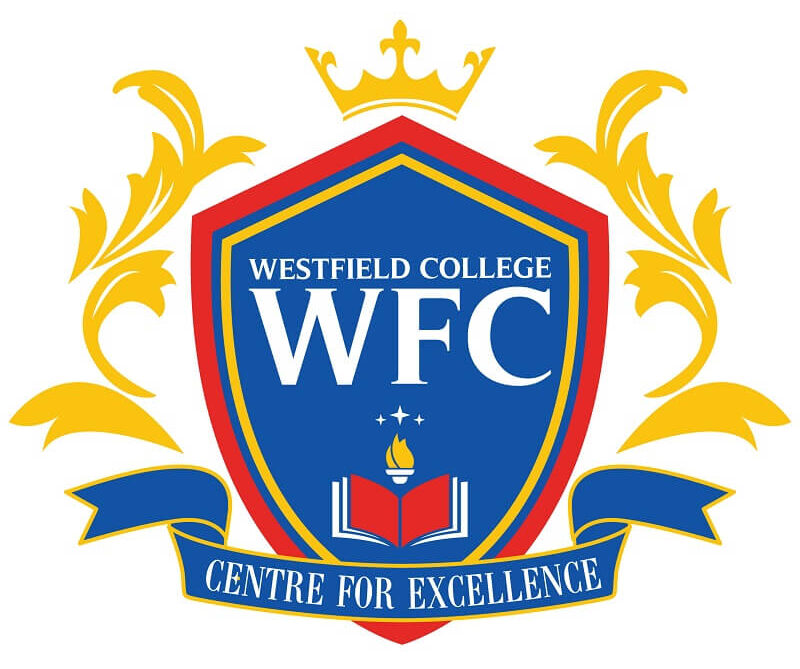Communication in Health and Social Care. Great Course. Very Easy to Understand
MA Music Therapy

MA Music Therapy
Overview:
Our MA Music Therapy course is the only blended learning course running in the UK. It is designed to be accessible and broaden access to the Music Therapy profession. We want to support you to develop into the Music Therapist that is the right fit for you and your clients.
This innovative, blended MA Music Therapy is accessible to musicians from a range of backgrounds who wish to pursue this career path alongside portfolio careers, performance commitments or caring responsibilities. We empower students to recognise the approaches which resonate with them and is meaningful in the context of their lives and experiences.
The MA Music Therapy is approved by the Health and Care Professions Council (HCPC).
Online application form
Information requested on this form should be completed in as much detail in order to process your application successfully. All fields marked * must be completed.
Apply Now
Entry Requirements
The demands of the Music Therapy course and the Music Therapy profession require you to demonstrate a suitable level of life experience and maturity.
You will usually require an undergraduate degree in a relevant field of study, an equivalent professional qualification, or extensive experience in a related field, plus evidence of substantial experience of musical practice, including exposure to and skill in utilising a variety of styles of music. We have a widening of access agenda that means we can map experiences against entry requirements if you do not have an undergraduate degree – we welcome conversations about this entry pathway.
Applicants must be able to perform on their main instrument or voice to a high standard. You need not have completed any formal examinations on your instrument(s). The reading of musical notation is not a requirement on this training. We value lived experience, musicality and diverse musical experiences on this training, recognising that there will be many musicians from eclectic backgrounds who will bring richness and insight to the profession and workforce.
You will need to upload 2 references with your application, one of which should be academic, if possible, with the other relating to your musical experiences. The reference must be on letter headed paper or the referee can send it directly from a professional/work email address to admissions@southwales.ac.uk
You will also need to upload film of you performing with your application. We would like to see a current musical snapshot of you. Youtube films, audio recordings, filmed performances of any kind will be welcomed. It is important that we can clearly hear your part if it is a group/band performance. You should demonstrate that you have at least one main instrument and at least one other on which you are competent. Ideally, we would like to see some evidence of skill on an accompanying instrument such as guitar or other similar stringed instrument, and keyboard/piano, if one of these is not your main instrument. Use of voice is also important in music therapy, so please feel welcome to share any examples of using your voice musically. This need not be formal or classical singing.
Through your application and at interview, we will be looking for significant practical experience (voluntary or paid) in a relevant setting, or with clients or service users, to demonstrate that you are receptive to working with a range of client groups. This could include personal or professional experiences and may or may not include working musically. Please be prepared to discuss examples at interview of your experiences of connecting with others.
An Enhanced Disclosure and Barring Service (DBS) check on the Child & Adult Workforce and Child and Adult Barring Lists and subscription to the DBS Update Service. (Overseas equivalent required for non-uk applicants)
If your first language is not English then we require IELTS grade of 7.0 with a minimum score of 6.5 in each component.
WHAT YOU WILL STUDY
Year One: MA Music Therapy
The first year of study introduces students to models of engaging with wellbeing through music, before moving into an exploration of a range of models of music therapy and fundamental aspects of therapeutic process. Clinical improvisation skills are developed before engaging in a dedicated module to develop professional skills towards the placement experiences.
- Health Promotion Through Music – During this module, students will learn about preventative approaches to exploring wellbeing through music. They will design, deliver and evaluate and arts in health project in their local community.
- The Therapeutic Relationship in Music Therapy – This module introduces a range of models of music therapy and fundamental aspects of therapeutic process. Students will develop their clinical improvisation skills in applied and active learning.
- Developing Professional Practice in Music Therapy – Students will develop the professional skills required for music therapy placements, including engagement with professional standards, risk assessment and safeguarding. They will shadow a music therapist for a minimum of 2 days, reflecting on these visits.
Year Two: MA Music Therapy
The second year of study involves a twenty week placement which is embedded in the Professional Practice in Music Therapy 1 module, supported by the problem-based learning approaches included in the Clinical Reasoning Skills module. Students engage in the Contemporary Music Therapy Skills module to enhance their repertoire of musical techniques and methods to work with clients in music therapy practice.
- Contemporary Music Therapy Skills – This module builds on students’ clinical improvisation skills and introduces contemporary methods utilised in the profession, such as receptive music therapy, songwriting, use of technology and more.
- Clinical Reasoning Skills – This module enables students to develop skills they will need to respond to clinical cases they are engaging with on placement. Students will work collaboratively and inter-professionally to expand their knowledge and understanding.
- Professional Practice in Music Therapy 1 – Students will engage in a twenty week placement where they develop their own clinical practice while engaging in clinical supervision and reflective practice. This is an opportunity to apply the learning from the course and develop students’ therapeutic identity.
Year Three: MA Music Therapy
The third year involves a second, twenty week placement in a contrasting context with increased complexity. Students will also develop research skills of relevance and of interest to their evolving therapeutic identity. The year concludes with students engaging in advanced music therapy skills and consider how to develop employability skills post-qualifying.
- Developing Research Skills in Music Therapy – Students will develop research skills of relevance and interest to their practice through the construction of a detailed research proposal and ethics application.
- Professional Practice in Music Therapy 2 – Students will engage in a second twenty-week placement of increasing complexity where they develop their own clinical practice while engaging in clinical supervision and reflective practice.
- Advanced Music Therapy Skills and Employability – This module will offer perspectives on advanced practice in music therapy to further develop their clinical skills. They will receive a Level 3 safeguarding training to further ensure readiness for work and will use challenge-based learning principles to enhance their employability.
Please note it is a course requirement that you attend personal therapy with an experienced therapist for a minimum of 10 hour-long sessions in each year of study.
Teaching
The MA Music Therapy course is delivered as a blended learning curriculum. This means that you will be on campus approximately every fortnight for a day packed full of practical activities and discussions. Material will is provided online in a range of formats, and you will need to engage with in advance of the on-campus days.
Assessment
Assessments are varied in type, with some offering a student choice of assignment so that you can choose the one best suited to your preferred submission style. We have some written essays, presentations, practical musical assessments and portfolios of evidence of your learning.
COURSE DETAILS
Accreditations
The MA Music Therapy is regulated by the Health and Care Professions Council (HCPC).
Placements
Work placements take place in each academic year of study.
In Year 1, as well as an art in health project, there will be contextual visits to music therapists so that students understand how music therapy works in various settings.
In Years 2 and 3 students will deliver supervised music therapy work to a range of client groups.
Placements are quality assured by our placement department to ensure relevant policies are in place and the placement can provide what is needed for our students.
Facilities
We have two dedicated, dual-purpose music therapy spaces at USW Newport Campus, where students have access to a wide range of instruments including multiple pianos, guitars, tune and untuned percussion.
Some of the whole group teaching happens in nearby teaching spaces, and practical, role play or break out activities are often held in the dedicated music therapy spaces.
Students have access to the physical library on campus as well as all of its digital resources.
The course works closely with USW Study Skills to induct students into this service, which the course thoroughly recommends that students engage with during their studies.
Additional Costs
As a student of USW, you’ll have access to lots of free resources to support your study and learning, such as textbooks, publications, online journals, laptops, and plenty of remote-access resources. Whilst in most cases these resources are more than sufficient in supporting you with completing your course, additional costs, both obligatory and optional, may be required or requested for the likes of travel, memberships, experience days, stationery, printing, or equipment.
CAREERS
Once graduated from this course students are eligible to apply to the HCPC for registration as a music therapist. This opens a range of possible careers. We have very high levels of graduate employment from our course, with USW alumni working in schools, NHS, charities, project-based work for local authorities as well setting up their own businesses.
There are opportunities all over the UK music therapy work, so whether you want to stay local to where you currently live or venture into a different part of the UK, the world is your oyster.
Graduates can also progress to a PhD or research degree.
Students progress into a wide range of roles and career trajectories following their studies at USW. Recent graduates have progressed to PhD study, to set up their own businesses, to local, national and international music therapy posts, to work for charities or organisations or to create roles within other organisations. Some students conduct music therapy related practice within other roles such as school-based counselling services, mental health practitioners, wellbeing practitioners. Some combine arts in health practice, music therapy and performance in a successful portfolio career.
Fees
Full time
- 12 to 18 months
£7,250
You’ll study 9 modules in total (approx. 37 hrs/week).
Part time option one
- 12 to 18 months
£4,250
You’ll study 6 modules per year (approx. 25 hrs/week).
Part time option two
- 12 to 18 months
£5,500
Have a question about our professional qualifications?

Contact us about our professional qualifications
If you have any questions about our professional qualifications in finance and banking, please contact our customer services team.
Call us
- +44 (0) 203 771 5653
- admissions@westfieldcollege.co.uk
What Our Students Have To Say
Hi, I recently started Access to Higher Education Diploma (Nursing and Midwifery) course with Westfield College.
--Komal Kiran Galaria
DesignerMy experience with Westfield College is great. The supervisor and the admin team are proactive and efficient.

